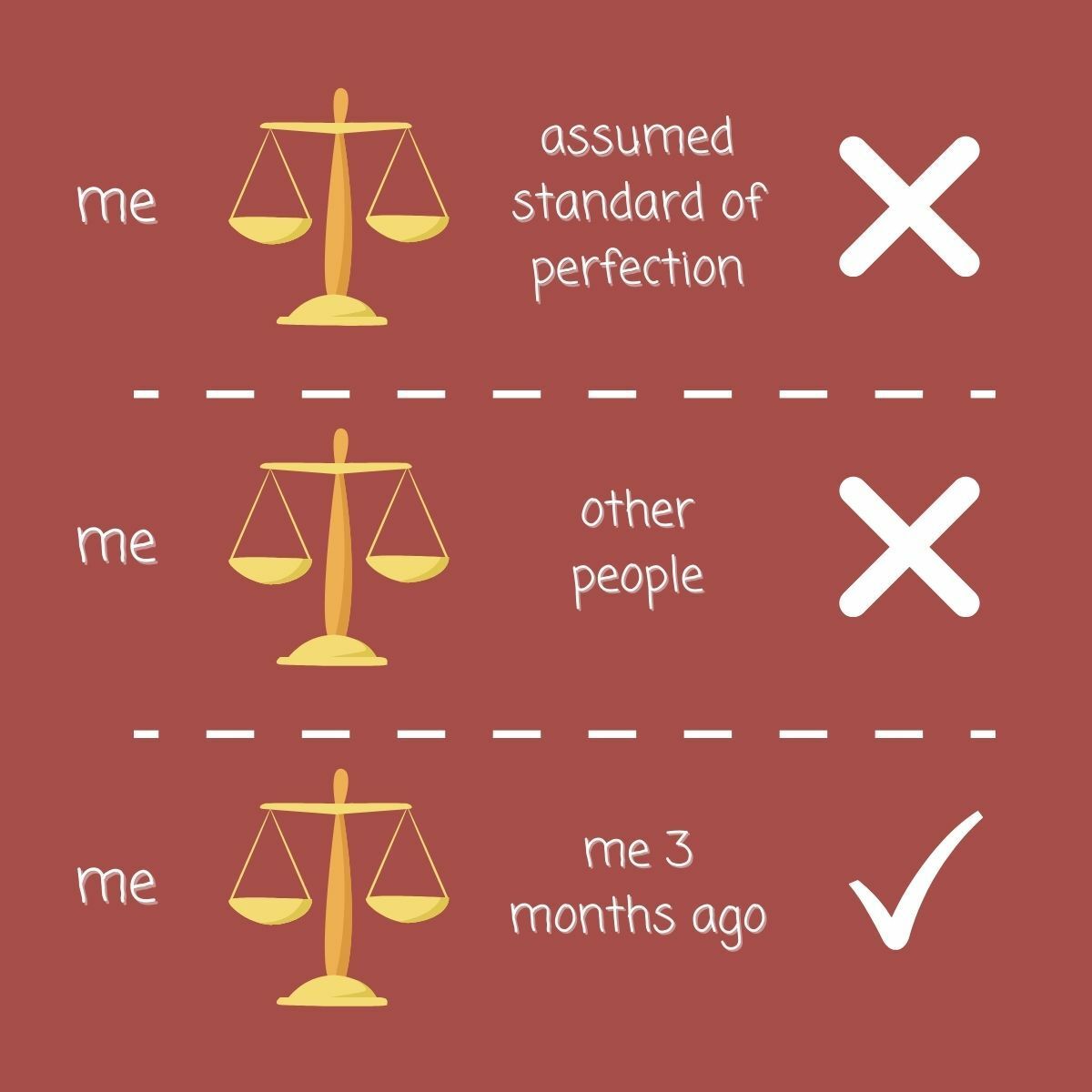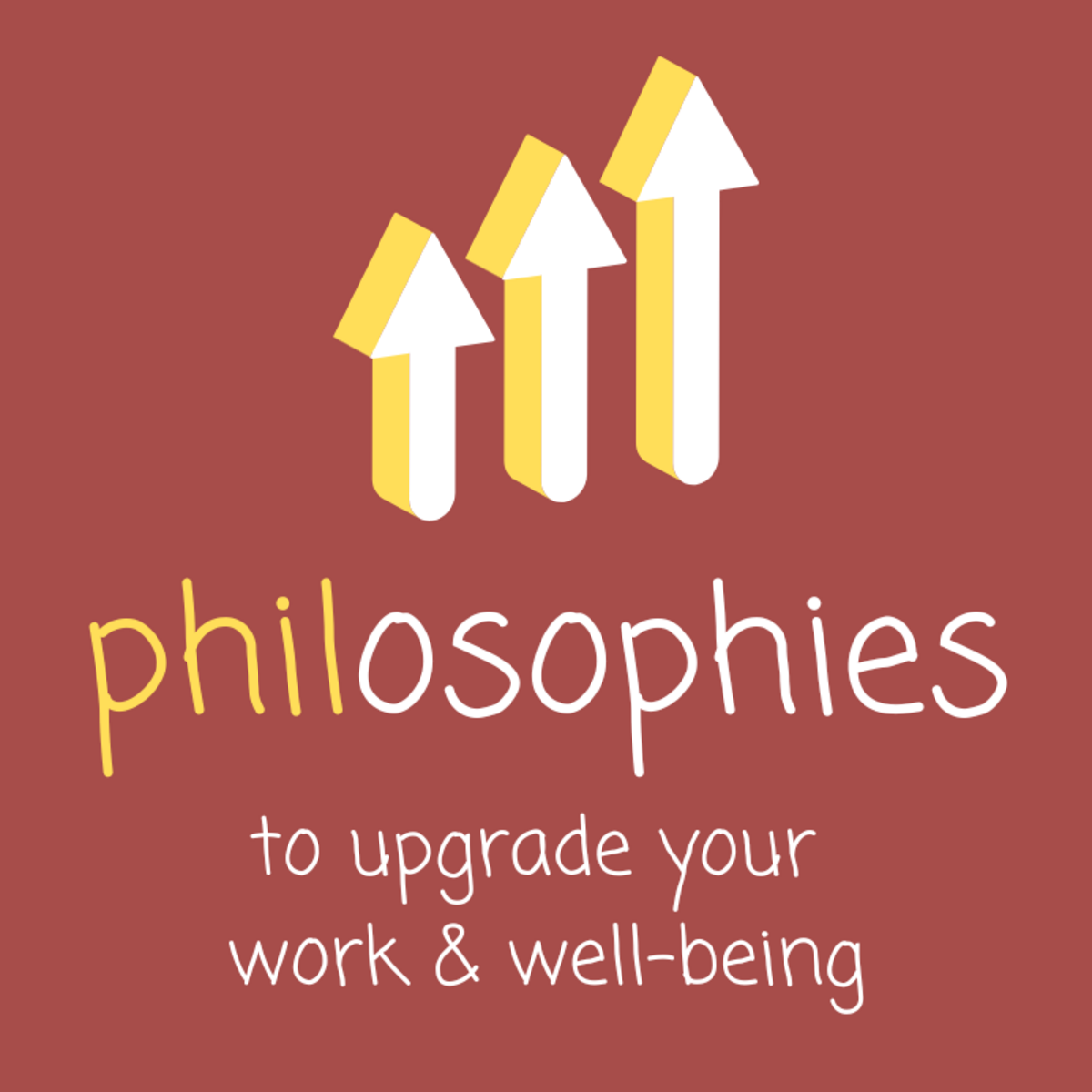
Read time: 4 min
Q: What’s the root of unhappiness?
A: Comparison.
Well, two types of comparison at least. One type, perhaps not.
Let’s explore.
1. Comparing yourself to some assumed standard of perfection
It’s wild how high we set the bar for ourselves. A disease of our time is that we try to do too much and expect all we do to be perfect.
That expectation makes it difficult to enjoy the journey and is a recipe for feeling shitty about ourselves.
Also, all too often, expecting perfection prevents us from trying in the first place. The underlying fear is: if we’re not perfect - and immediately - well then we’ll have to deal with failure.
Two simple re-frames to reduce the tension that accompanies this unrealistic, unfair, and unnecessary comparison:
→ Reframe “failure”
We have failure wrong. It’s 100% co-mingled with success.
When we learned to walk as an infant, what we really learned to do is to finally stop falling. Learning to walk is going from walk→fall→walk→fall to just walk.
This is how we learn anything. There is no learning or accomplishing and not failing. It’s part of the process.
→ Lower the damn bar
I know, I know; that sounds insane in this world. But what if you assumed, each morning, that you’ve already done enough and anything you do that day is a win? I bet you’d enjoy the process more.
You don’t need to do more and, no, what you do work on does not need to be perfect.
2. Comparing yourself to other people
Keeping up with the Jones’s Kardashians.
Our brain is wired to be tripped up by society here.
I think it’s safe to say we intuit that social media makes us miserable with the teenage brain, unsurprisingly, being most susceptible.
Why that’s the case, I surmise, comes down to the degree to which it feeds on the brain’s tendency to compare.
Instagram? You’re prettier and have more money.
Facebook? You’re happier and have more fun.
Twitter? You’re more popular and have more original ideas.
LinkedIn? You’re smarter and have a better job.
Forget driving past our neighbors and assessing what car(s) they have. Nowadays, most of our digital lives are spent twisted up in these (often unconscious) comparisons.
Here are two mental frames to reduce envy, the root of this deadly form of comparison:
→ Recognize you - yes, you - are living a dream life.
Out there in the world are literally millions of people who would consider their prayers answered if they could switch places with you. That simple.
Keep that thread of thinking conscious in your mind as much as possible.
→ Recognize you can’t inherit only some of a person’s life.
Sometimes when comparing ourselves to others, our minds desire a certain characteristic of another person - e.g. I wish I had that body, that skill, that job, etc.
Recognize that whatever body or job or life you see - or think you see - is only the iceberg and beneath it is a massive set of experiences, thoughts, and emotions. And not all of them are positive.
Many of the most “accomplished” people posses, deep-down, feelings of fear, insecurity, and inadequacy. These emotions often fuel accomplishments, which then don’t necessarily throttle down the emotions. As the saying goes: the brighter the light of success, the darker the shadow.
When you encounter that intruding thought - the “I wish I had that” thought - remember that you can’t have just that body or just that knowledge; rather, you’d need to completely switch lives with that person. And with it, you’d need to take on the total realm of experiences and emotions associated.
While obviously you can’t actually switch lives with people, the reframe helps a ton.
Your brain floods with a bunch of things you’re grateful for
You realize you wouldn’t want to give up what you love in exchange for it
You realize you wouldn’t want to take on the negative baggage tied to it
You realize there’s nothing, after all, to envy
3. Comparing yourself to your former self.
Ah, now onto something healthier.
We’re constantly changing even though we hardly notice it. After all, you’ve shedded over 50,000 skin flakes since you started reading this post! This constant shedding and re-forming of skin is a microcosm for our lives.
What new skin have you formed? To answer, simply create space to reflect on your current and past versions of yourself.
Here are some questions you can use:
What have you learned or unlearned lately?
How / in what ways have you improved?
When did you pleasantly surprise yourself?
How are you seeing the world differently?
What progress have you made?
What wins did you have?
What are you proud of lately?
There are almost always answers to those questions.
They require the light of attention to be there, not at (1) some fake, impossible standard of perfection and certainly not at (2) someone else’s curated highlight tape.

With deep appreciation,
Phil
Bite-sized asks:
Dig it? Forward to a friend / colleague ... it only takes 20 seconds.
Reply to let me know what resonated most.
Oh, and if you're new here, sign up below to receive weekly posts!

